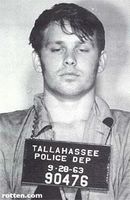"Star Wars: Episode III -- Revenge of the Sith": A Review
Way too much thought and analysis will no doubt swirl around Episode III -- Revenge of the Sith, the last installment in the epochal Star Wars series, but it will be particularly interesting to see what Jedi mind tricks emerge from its unmistakable political undertones. Unlike 2002's disappointing Attack of the Clones, the politics in Revenge arrive amid plenty of lightsaber-fueled action.
Some politicos will surely be intrigued by George Lucas' veiled critique of the Bush administration. When Anakin Skywalker (Hayden Christensen) is on the cusp of spiraling off into the dark side of the Force, he tells his one-time mentor, Obi-Wan Kenobi (Ewan McGregor) that "if you are not with me, then you're my enemy." It rings familiar for a reason; you can almost literally hear the echoes of Dubya's infamous warning to the countries of the world that "either you are with us or you're with the terrorists." Anakin's words enrage Obi-Kan, who sputters that "only a Sith deals in absolutes!" (Who would have guessed that the Force embraced relativism and situational ethics?)
Demagoguery, albeit the kind gussied up in the wardrobe of patriotism, receives a rebuke later on by Anakin's wife, Senator Padme Amidala (Natalie Portman). As Chancellor Palpatine (Ian McDiarmid) addresses the Senate with a fire-and-brimstone speech, Padme -- in a moment of typically George Lucas non-subtlety -- remarks "this is how liberties die -- with thunderous applause." The inference seems obvious.
At last, a space opera that Michael Moore could love.
No, I'm not going through some sort of grad school delusion about the picture's subtext. The political currents in Revenge of the Sith were all the buzz at the Cannes Film Festival, according to AP writer David Germain.
"Lucas said he patterned his story after historical transformations from freedom to fascism, never figuring when he started his prequel trilogy in the late 1990s that current events might parallel his space fantasy.
" 'As you go through history, I didn't think it was going to get quite this close. So it's just one of those recurring things,' Lucas said at a Cannes news conference. 'I hope this doesn't come true in our country.
[...]
" 'When I wrote it, Iraq didn't exist,' Lucas said, laughing.
" 'We were just funding Saddam Hussein and giving him weapons of mass destruction. We didn't think of him as an enemy at that time. We were going after Iran and using him as our surrogate, just as we were doing in Vietnam. ... The parallels between what we did in Vietnam and what we're doing in Iraq now are unbelievable.'
Still, politics is hardly center stage in Revenge (thank the Force). The crux of the film, frankly, is s a mixed bag, in spite of all the critics who have been wetting themselves coming up with superlatives for Lucas' swan song. I don't share the awe.
At least, not until the final 45 minutes, when Lucas barrels toward the fates of the main characters and sets the stage for what was, or will be (the pitfalls of writing about prequels), 1977's Star Wars: Episode IV -- A New Hope.
Until that delirious and affecting third act, however, Lucas' direction remains as scattershot as it was in The Phantom Menace and Attack of the Clones. Despite jaw-dropping CGI effects and a bounty of battle scenes, the pacing is weirdly choppy. Things come to a screeching halt whenever Lucas turns his attentions to the troubled home life of Anakin -- who feels dissed by the Jedi Council -- and his pregnant bride. Christensen isn't as teeth-gnashingly irritating as he was in Attack of the Clones, but he is still woefully lacking. It's not entirely his fault; Christensen has a daunting task, to say the least, portraying one of the most iconic characters in the history of cinema. And Portman, aside from being beautiful, is just ... just ... awful. (That said, McDiarmid truly shines as the chancellor; his seduction of Anakin to the dark side is appropriately slimy).
Moreover, Lucas doesn't do them any favors with dialogue that could charitably be called awkward. OK, so dialogue has never been the guy's specialty, but even by his standards, there is an inordinate number of clunkers here.
Ah, but that magical third act delivers on Star Wars' enduring mythology. There's no real suspense, of course; that much is a given in a prequel. But by virtue of knowing what will happen, the proceedings take on a tragic and fatalistic air. Yoda (voiced by Frank Oz) is forced (or is it Forced?) into exile. Luke and Leia are born, while the would-be proud poppa makes the transformation to Darth Vader.
It is a change, by the way, more heartbreaking than it is fearsome.























2 Comments:
So...how do you think a ten year old will like it?
I think they'd like it, but ... it is definitely the darkest and most violent of the series. It's PG-13, and there is some loping off of arms and legs, so be warned before you take the kiddos. I would think younger than 10 might be iffy.
Post a Comment
<< Home